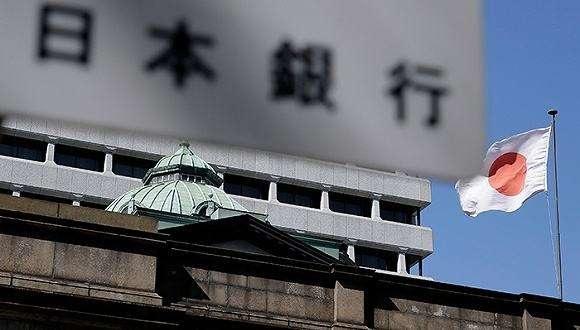
Against the complex backdrop of weak global economic recovery and heightened geopolitical risks, the Bank of Japan announced that it will keep its benchmark interest rate unchanged at 0.25%, which seems to be a sound decision, but in fact, there are many challenges and hidden worries. The reasons behind the BOJ's move, its likely implications and the challenges ahead.
The Bank of Japan chose to keep the benchmark interest rate unchanged, not suddenly, but based on a prudent assessment of the current economic situation and a forecast of the future direction. In the context of the sluggish global economic recovery, the Japanese economy is also facing the dilemma of insufficient growth momentum. Although Japan's economy has recovered in recent years, growth remains slow and inflation has long been low. This low-growth, low-inflation environment requires the Bank of Japan to be more cautious in setting monetary policy.
However, prudence is not the same as conservatism. While keeping the benchmark interest rate unchanged, the Bank of Japan also uses other monetary policy tools, such as quantitative easing, to stimulate economic growth and maintain price stability. Although this policy combination has eased the downward pressure on the economy to a certain extent, it has also brought new problems, such as the risk of asset bubbles and financial stability.
Inflation expectations are an important basis for the Bank of Japan to set policy. As a sign of a healthy economy, stable inflation is crucial for policy makers. But the peculiarities of Japan's economy make inflation particularly complicated. Japan has long been in an environment of low inflation and even deflation, which makes the Bank of Japan need to find a more precise balance between stimulating economic growth and controlling inflation risks.
According to the Bank of Japan's latest forecasts, inflation will hover near its 2 per cent target for the next few years. This is both a positive sign that the economy is gradually regaining its vitality and a hidden challenge. If inflation continues to rise and exceed expectations, the Bank of Japan will be under pressure to raise interest rates, which could negatively impact economic growth. On the other hand, if inflation remains persistently low, it could trigger the risk of deflation, further weakening economic growth momentum.
Changes in the external environment have also brought many uncertainties to the Japanese economy. Factors such as slowing global growth, intensifying trade frictions, and volatile commodity prices could all have an impact on the Japanese economy. Of particular concern is the US economy. As the world's largest economy, monetary policy changes in the United States can have a ripple effect on global financial markets, which in turn affects the Japanese economy.
In recent years, with the rise of trade protectionism and the intensification of geopolitical risks, the global economic landscape is undergoing profound changes. This change not only adds to global economic uncertainty, but also poses a greater challenge for the Bank of Japan to set monetary policy. How to maintain policy stability and effectiveness in a complex international environment has become an important issue for the Bank of Japan.
Market reaction to the boj's latest decision was relatively muted, with the yen holding steady and stocks and bonds not moving wildly. This shows that the market has expectations about the direction of the Bank of Japan's policy and remains confident about the future of the Japanese economy. However, there are also undercurrents under the calm surface. Some experts believe that the Bank of Japan's decision to keep interest rates unchanged is only temporary and may be adjusted in the future according to changes in the economic situation.
In particular, with the gradual increase in inflationary pressure, the possibility of interest rate hikes is gradually rising. This will have a profound impact on the Japanese economy. On the one hand, higher interest rates help control inflation risks; On the other hand, raising interest rates may also lead to a slowdown in economic growth and even trigger the risk of recession. Therefore, how to find a balance between interest rate hikes and economic growth has become an important challenge for the Bank of Japan.
The peculiarities of Japan's economy make monetary policy more precise and flexible. In a low-growth, low-inflation environment, the Japanese economy is more sensitive to external shocks. As a result, the BOJ needs to weigh various factors more carefully in setting monetary policy. It is necessary not only to avoid excessive stimulus leading to runaway inflation, but also to prevent excessive policy contraction leading to economic recession.
However, this balance is not easy to achieve. Especially in the context of global economic volatility and increased trade frictions, the Bank of Japan is facing a more complex policy environment. How to deal with the uncertainty caused by external shocks while maintaining policy stability has become a problem that the Bank of Japan needs to think deeply about.
To sum up, the Bank of Japan's decision to keep the benchmark interest rate unchanged at 0.25% hides many challenges and hidden worries. Against the backdrop of a weak global economic recovery and heightened geopolitical risks, the Bank of Japan needs to maintain policy stability while dealing with uncertainties brought about by external shocks. At the same time, in the environment of low growth and low inflation, finding the balance point between economic growth and inflation risk has become an important issue for the Bank of Japan.

The South Korean political arena has once again been embroiled in a public controversy over a judicial investigation that has shaken the entire nation.
The South Korean political arena has once again been embroi…
On the morning of December 29th local time, the precious me…
According to the US media Barchart, recently, the fluctuati…
On December 29th, Mar-a-Lago in Florida, USA, witnessed a h…
SoftBank Group announced on Monday that it has agreed to ac…
Recently, the US State Department issued a visa ban, adding…